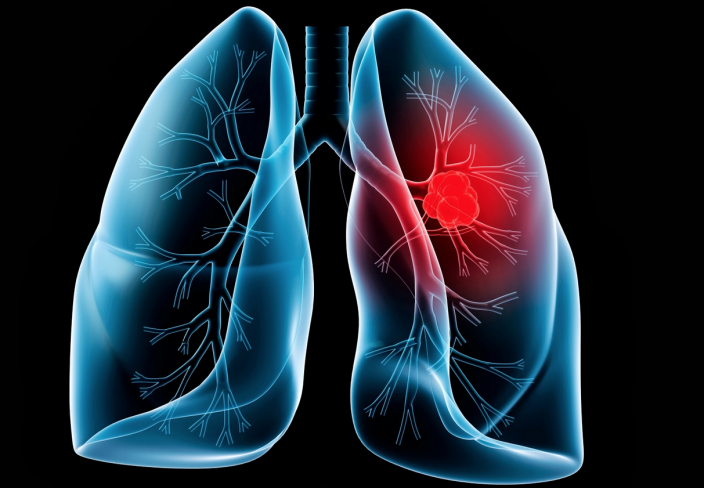8 Surprising Signs Of Lung Cancer Even If You Aren’t A Smoker
November 2 2017
Chest pain is the most obvious sign of lung cancer, but there are plenty of other signals you should know about—even if you’ve never smoked. Lung cancer was the 5th most commonly diagnosed cancer in Australia in 2013. It is estimated that it will remain the 5th most commonly diagnosed cancer in 2017. Up to 20% of people who die from it have never smoked at all.
Why might a nonsmoker get lung cancer? Exposure to air pollution, secondhand smoke, and environmental hazards like asbestos are culprits.
Whether you smoke regularly or have never lit up in your life, keep an eye out for the following symptoms. Although there are plenty of less nefarious reasons why these issues might crop up, play it safe and discuss them with your doctor.
A lingering cough
“The majority of people with lung cancer have a cough, occasionally with blood,” says McKenna. Bringing up thick, rust-colored mucus can also be an early sign. But even if you have a dry cough, if it’s lingered for over a month, it’s worth getting checked out.
Chronic infections
Most of the time, viruses are to blame for lung infections like chronic bronchitis. But if you’re repeatedly getting sick and every illness seems to go straight to your chest, it could be a sign of cancer.
Weight loss
Dropping pounds without a change in your diet or workout? “As with any cancer,” notes McKenna, “a more advanced tumor may make proteins that tell your body to lose weight.” That’s why you may also notice a drop in your appetite. (If you’re gaining weight and not sure why, it could be one of these weird reasons.)
Bone pain
If lung cancer has spread to other organs in your body, you may feel an achedeep down in your bones or joints, says Jack Jacoub, MD, a medical oncologist and director of thoracic oncology at MemorialCare Cancer Institute at Orange Coast Memorial Medical Center in Fountain Valley, CA. The back and hips are common sore spots. (Though this may also be a sign of vitamin D deficiency.)
Swelling in your neck and face
If a lung tumor begins pressing against your superior vena cava (the large vein that carries blood from your head and arms to your heart), you may notice swelling in your neck and face, says Jacoub. Your arms and upper chest can also be affected. (Try this simple 12-day liver detox from Rodale and lose up to 13 pounds!)
Overwhelming fatigue
“This is different than feeling tired,” Jacoub notes. “It’s feeling so worn out that you can’t wait to climb into bed,” and getting lots of rest doesn’t help. As many as 80% of people with cancer note “excessive tiredness” as a symptom. (Here are 7 reasons you’re tired all the time.)
Muscle weakness
Lung cancer affects your muscles as well as your organs. One of the first areas to be impacted: your hips. “You might find it hard to even get out of a chair,” says Jacoub. Weakness in the shoulders, arms, and legs is also typical.
High calcium levels
Certain lung cancers make hormone-like substances that upset the balance of minerals in your body. In some instances, says McKenna, excess calcium gets released into the bloodstream. While you may not realize your levels are through the roof until your doctor orders a lab test, you should notice the symptoms that go along with high calcium: frequent urination, excessive thirst, constipation, nausea, belly pain, and dizziness.
If you’re experiencing a couple or more symptoms written above, contact Myers Street Family Medical Practice on 03 5229 5192 or The Cottage Medical Clinic on 03 5241 6129 to schedule a consultation with one of our medical professionals.
